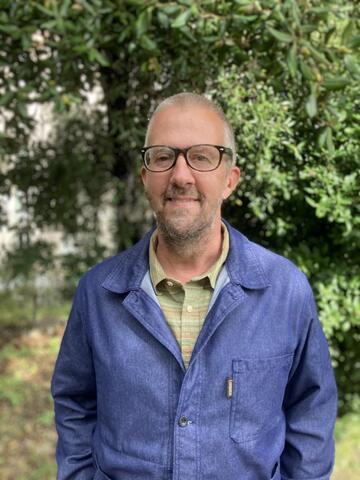Event time:
Friday, October 28, 2022 - 11:00am
Location:
Online via Zoom, and 230 Prospect Street, Room 101
Event description:
M. D. Usher is Lyman-Roberts Professor of Classical Languages and Literature and a faculty member in the Department of Geography and Geosciences at the University of Vermont, where he teaches courses in environmental humanities and Classics. He apprenticed in Germany as a post-and-beam carpenter and later earned a Ph.D. in Classics at the University of Chicago. Usher has conducted field work in Mongolia, Malawi, and India, and oversees research and a student internship in archaeology, paleobotany, sustainable agriculture, and food systems in Italy’s Sabine Hills (The Roman Villa Project). With his wife Caroline he also built and operates Works & Days Farm in Shoreham, Vermont, producing lamb, eggs, and maple syrup on 125 acres.
Recent books include Plato’s Pigs and Other Ruminations: Ancient Guides to Living with Nature (Cambridge, 2020), How to Be a Farmer: An Ancient Guide to Life on the Land (Princeton, 2021), How to Say No: An Ancient Guide to the Art of Cynicism (Princeton, 2022), and POEM: A Mashup, illustrated by T. Motley (Fomite Press, 2021). How to Care about Animals: An Ancient Guide to Creatures Great and Small (Princeton) is in press and forthcoming soon.
Agrarian Studies Program:
The core of the Agrarian Studies Program’s activities is a weekly colloquium organized around an annual theme. Invited specialists send papers in advance that are the focus of an organized discussion by the faculty and graduate students associated with the colloquium. This topic embraces, inter alia, the study of mutual perceptions between countryside and city, and patterns of cultural and material exchange, extraction, migration, credit, legal systems, and political order that link them. It also includes an understanding of how different societies conceive of the spatial order they exhibit. What terms are meaningful and how are they related?: e.g., frontier, wilderness, arable, countryside, city, town, agriculture, commerce, “hills,” lowlands, maritime districts, inland. How have these meanings changed historically and what symbolic and material weight do they bear?
Meetings are Fridays, 11am -1pm Eastern Time, unless otherwise noted.
Meetings will be held in a hybrid format, both on Zoom and in-person at 230 Prospect Street, Room 101.
Please contact agrarian.studies@yale.edu to receive the meeting information and the password to download the paper from the Agrarian Studies website.
Admission:
Free but register in advance
